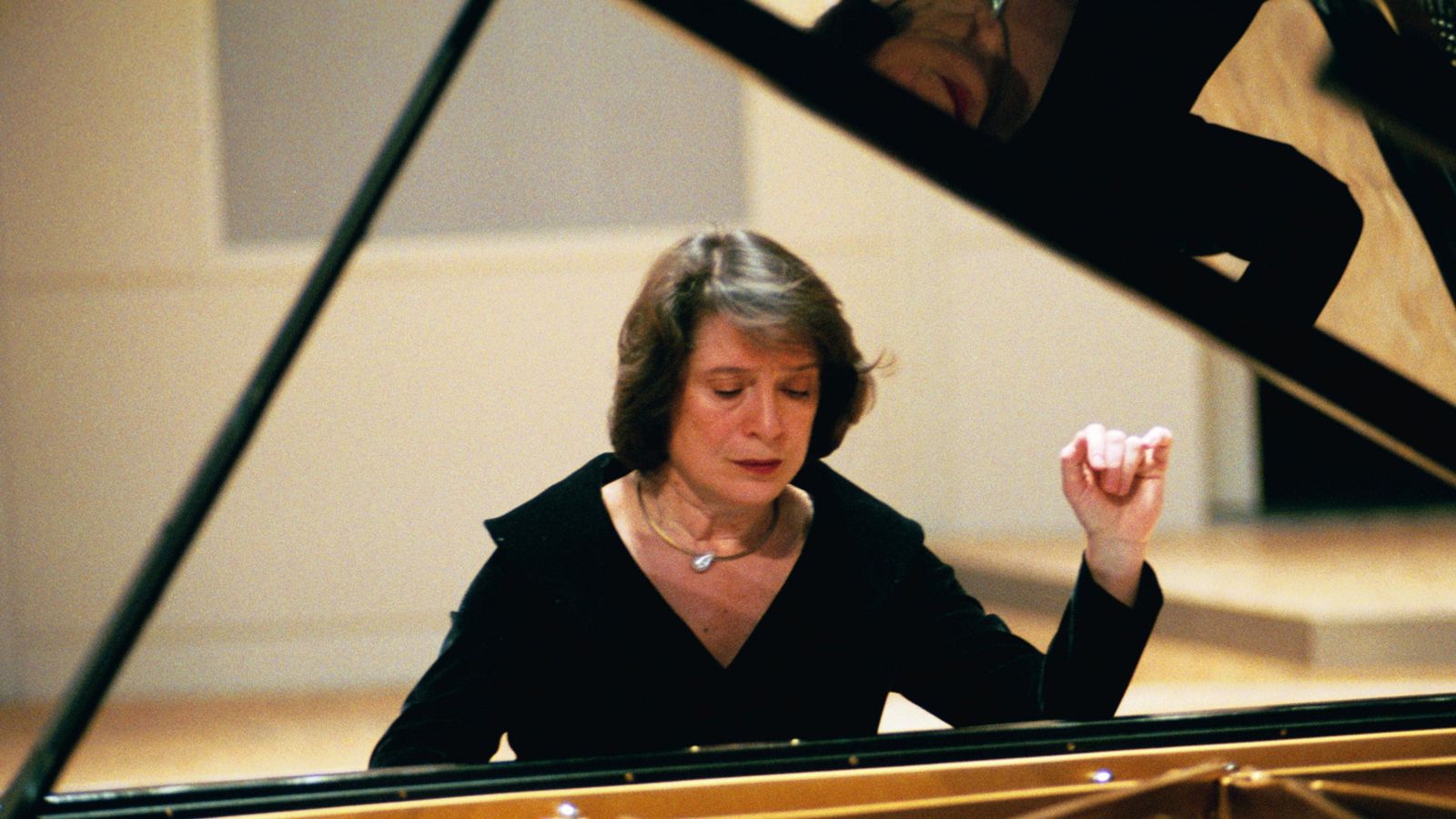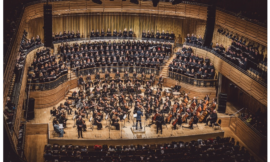Elisabeth Leonskaja is one of the most revered pianists of the late 20th and early 21st centuries, known for her profound interpretations, technical brilliance, and unwavering dedication to classical music. Born in the Soviet Union but later making her home in Austria, Leonskaja has built a reputation as an artist who carries the torch of the great Russian pianistic tradition while infusing it with her own unique sensibilities.
Elisabeth Leonskaja. Ludwig van Beethoven Piano Concerto No 5 “Emperor”
Early Life and Education
Elisabeth Leonskaja was born on November 23, 1945, in Tbilisi, Georgia, which was then part of the Soviet Union. From an early age, her prodigious talent was evident, and she began studying piano as a young child. Her passion and ability led her to the Moscow Conservatory, one of the most prestigious music institutions in the world, where she studied under the renowned pianist and teacher Jacob Milstein. Her time at the conservatory was marked by rigorous training, deep musical exploration, and exposure to the rich Russian classical music tradition.
During her studies, Leonskaja quickly gained recognition as an exceptional talent, winning several international competitions. These included the Enescu Competition in Bucharest, the Marguerite Long-Jacques Thibaud Competition in Paris, and the Queen Elisabeth Competition in Brussels. These early successes propelled her career forward and solidified her reputation as a pianist of extraordinary ability.
Artistic Collaboration with Sviatoslav Richter
One of the most significant influences in Leonskaja’s life and career was her close association with the legendary pianist Sviatoslav Richter. Richter recognized her talent early on and became both a mentor and collaborator. The two frequently performed together, particularly in chamber music settings, where their artistic synergy was palpable. Leonskaja credits Richter with shaping her approach to music, teaching her the importance of artistic integrity, humility, and an uncompromising dedication to the score. Their musical partnership continued until Richter’s death in 1997, and his influence remains a guiding force in her interpretations.
Emigration to the West and Career in Austria
In 1978, at the height of the Cold War, Leonskaja emigrated from the Soviet Union to Austria, where she was granted citizenship. This move allowed her greater artistic freedom and access to the international concert circuit, which had previously been limited by Soviet restrictions. Settling in Vienna, she quickly established herself as one of the foremost pianists of her generation. Her performances in major European concert halls and with leading orchestras cemented her place among the great interpreters of classical piano repertoire.
Interpretation and Repertoire
Elisabeth Leonskaja is particularly renowned for her interpretations of the great German and Russian composers. She has been a distinguished performer of Beethoven, Brahms, Schubert, and Schumann, bringing to their works a deep intellectual and emotional engagement. Her performances of Schubert’s sonatas and late piano works are especially revered for their clarity, depth, and lyrical beauty. Critics often praise her ability to capture the introspective and often melancholic nature of Schubert’s music while maintaining structural coherence and poetic nuance.
Her Russian roots are also reflected in her interpretations of Rachmaninoff, Prokofiev, and Tchaikovsky. Her playing is marked by a balance of power and sensitivity, qualities that have become hallmarks of the Russian piano school. Leonskaja’s ability to traverse the technical demands and emotional depths of these composers has won her admiration from both audiences and critics worldwide.
Recordings and Legacy
Leonskaja has an extensive discography that showcases her vast repertoire and interpretative insight. Her recordings of Schubert’s complete piano sonatas are particularly celebrated, as they offer a deep and personal exploration of the composer’s works. Other notable recordings include Brahms’ late piano pieces, Beethoven’s sonatas, and chamber music collaborations with esteemed musicians such as the Borodin Quartet and violinist Gidon Kremer.
Throughout her career, Leonskaja has remained committed to live performance, believing in the irreplaceable connection between performer and audience. Her concerts are known for their profound intensity, and she has a reputation for eschewing showmanship in favor of deep musical expression. Her humility and dedication to music over personal fame have made her a beloved figure among connoisseurs of classical piano.
Teaching and Influence
In addition to her performing career, Leonskaja has dedicated time to mentoring young pianists. She has given masterclasses around the world, passing on the traditions of the Russian school of piano playing while encouraging individual artistic expression. Her influence on younger generations of musicians ensures that her legacy will extend beyond her own performances.
Awards and Recognition
Elisabeth Leonskaja has received numerous awards and honors throughout her illustrious career. She has been recognized for her contributions to music with Austria’s highest cultural honors, including the Austrian Cross of Honour for Science and Art. She has also been named an Honorary Member of the Konzerthaus in Vienna, an honor bestowed upon only the most distinguished musicians.
Her enduring presence in the classical music world has been marked by an unwavering commitment to artistic excellence, a trait that has earned her a place among the greatest pianists of her time. Unlike many of her contemporaries, Leonskaja has maintained a relatively low profile in the media, allowing her artistry to speak for itself.
Continuing Career and Musical Philosophy
Now in the later stages of her career, Elisabeth Leonskaja continues to perform internationally, delivering concerts that are as compelling and insightful as ever. Her approach to music remains deeply introspective, emphasizing the purity of the score and the composer’s intent rather than virtuosic display. She has stated in interviews that she sees herself as a lifelong student of music, constantly striving to deepen her understanding of the works she performs.
Leonskaja’s philosophy is rooted in the belief that music is a profound and transformative force. She has often spoken about the responsibility of the pianist to serve the music, rather than seeking personal acclaim. This selfless approach has endeared her to audiences and musicians alike, reinforcing her status as one of the true greats of classical piano.
Conclusion
Elisabeth Leonskaja’s contributions to classical music are immeasurable. With a career spanning several decades, she has remained steadfast in her commitment to musical excellence, bringing depth, intelligence, and emotional sincerity to her performances. Her interpretations of Schubert, Beethoven, and Brahms are considered among the finest of our time, and her influence as a performer and mentor continues to shape the world of classical music.
Her journey from a prodigious talent in Soviet Georgia to an internationally celebrated artist in Austria is a testament to her resilience, dedication, and love for music. In an age where virtuosity is often prioritized over depth, Leonskaja stands as a beacon of true musical integrity. As she continues to perform and inspire, her legacy as one of the greatest pianists of her era is firmly secured.



